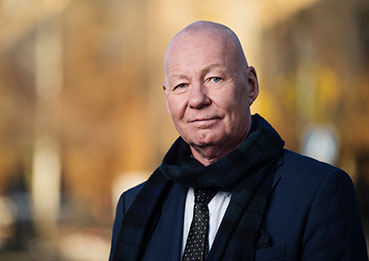A spirit of openness and strong commitment defined the atmosphere when the Student Union Council — the highest decision-making body of the THS Student Union at KTH — gathered the other evening. Once again, I was reminded of the vital role that the THS Student Union plays in KTH’s success.
Studying at KTH is often demanding. Succeeding in your education requires prior knowledge and hard work. But alongside your studies, you also need an inclusive and stimulating learning environment. This means students should feel secure and find opportunities to grow by getting involved in the union, its chapters, and its associations. By organizing student influence and acting as an umbrella organization for the 22 chapters within the organisation THS creates significant value that benefits us all.
The physical environment is one part of this. KTH strives to provide optimal learning environments in the form of seminar rooms, lecture halls, and group rooms, as well as ensuring that study spaces are available. The campus was crowded last autumn, but as the number of students decreases and adjustments to the premises are made, the campus environment will improve.
The social environment is another important factor. Thanks to the fantastic reception that kicked off the fall semester, many students got involved in welcoming new students. It will soon be time again to plan the autumn reception, in which around a hundred students will spend two days learning about the organization, purpose, and implementation of the reception. Our newcomers should have a positive and welcoming first experience with the campus, KTH, and THS Student Union.
Our commitment to Dare to Care is also part of today’s study environment. Dare to Care aims to foster the readiness and ability to respond when someone is subjected to various forms of undesirable behavior, including harassment and sexual abuse.
Strong camaraderie among students is also important, of course. This means being willing and ready to help, mentor, build long-term relationships, and create security by getting to know and trust each other. I don’t think you can overestimate the importance of THS and its chapters in achieving this.

